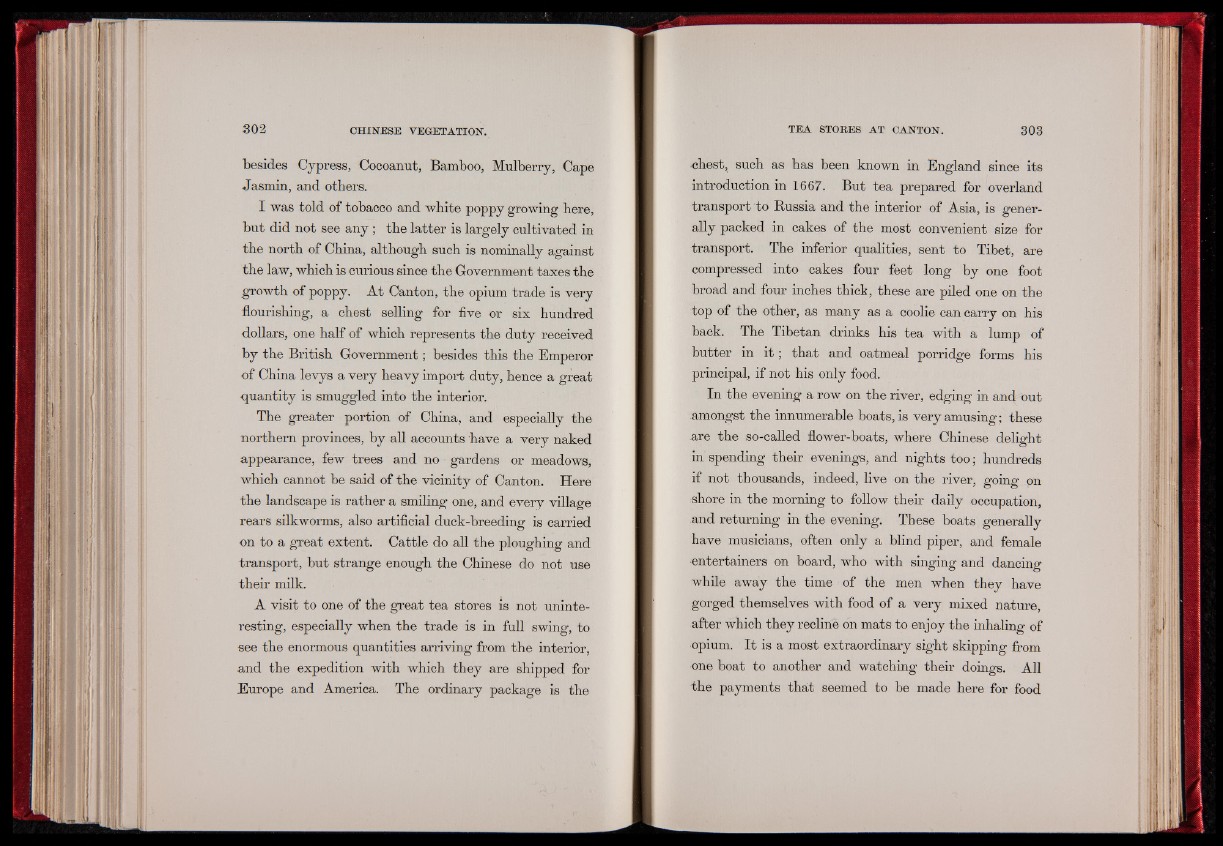
"besides Cypress, Cocoanut, Bamboo, Mulberry, Cape
Jasmin, and others.
I was told of tobacco and white poppy growing here,
hut did not see a n y ; the latter is largely cultivated in
the north of China, although such is nominally against
the law, which is curious since the Government taxes the
growth of poppy. At Canton, the opium trade is very
flourishing, a chest selling for five or six hundred
dollars, one half of which represents the duty received
by the British Government; besides this the Emperor
of China levys a very heavy import duty, hence a great
quantity is smuggled into the interior.
The greater portion of China, and especially the
northern provinces, by all accounts 'have a very naked
appearance, few trees and no gardens or meadows,
which cannot be said of the vicinity of Canton. Here
the landscape is rather a smiling one, and every village
rears silkworms, also artificial duck-breeding is carried
on to a great extent. Cattle do all the ploughing and
transport, but strange enough the Chinese do not use
their milk.
A visit to one of the great tea stores is not uninteresting,
especially when the trade is in full swing, to
see the enormous quantities arriving from the interior,
and the expedition with which they are shipped for
Europe and America. The ordinary package is the
■chest, such as has been known in England since its
introduction in 1667. But tea prepared for overland
transport to Russia and the interior of Asia, is generally
packed in cakes of the most convenient size for
transport. The inferior qualities, sent to Tibet, are
compressed into cakes four feet long by one foot
broad and four inches thick, these are piled one on the
top of the other, as many as a coolie can carry on his
back. The Tibetan drinks his tea with a lump of
butter in i t ; that and oatmeal porridge f o rm s his
principal, if not his only food.
In the evening a row on the river, edging in and out
amongst the innumerable boats, is very amusing; these
are the so-called flower-boats, where Chinese delight
in spending their evenings, and nights too; hundreds
if not thousands, indeed, live on the river, going on
shore in the morning to follow their daily occupation,
and returning in the evening. These boats generally
have musicians, often only a blind piper, and female
•entertainers on board, who with singing and d a nm 'n g
while away the time of the men when they have
gorged themselves with food of a very mixed nature,
after which they recline on mats to enjoy the in baling- 0f
opium. I t is a most extraordinary sight skipping from
one boat to another and watching their doings. All
the payments that seemed to be made here for food